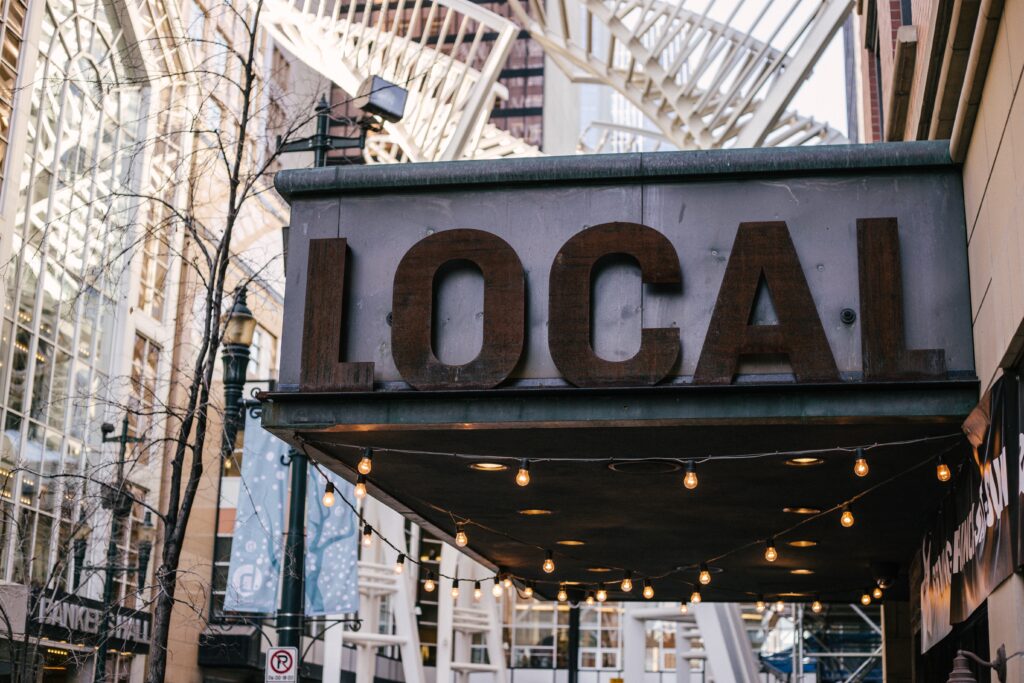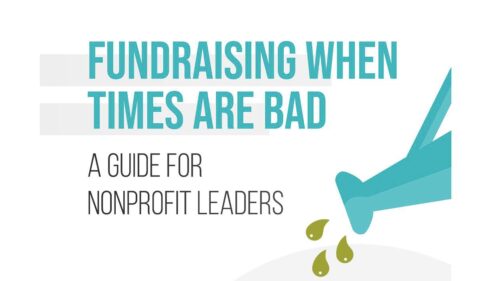A localist viewpoint can help give shape and purpose to our philanthropic giving.
This is the modified transcript of a talk delivered at the Bradley Impact Fund conference in September 2018.
Localism is trendy these days. One sees t-shirts, in Phoenix where I live, that say, simply, “Localist.” Local First Arizona is the name of an association serving small merchants in our state. In Phoenix, as everywhere else, we are instructed to eat local, shop local, think local. And such instructions are heard, typically, not from bow-tied conservatives or business-minded libertarians but from bearded, heavily tattooed progressive hipsters wearing homemade deodorant. My fear is that this situation may lead, or has led, people with more traditional sensibilities to assume that localism is some sort of dangerous idea or, at best, a hackneyed impractical cliché not worth thinking about.
The truth, I think, is that this turn toward the local—a turn that at this point is admittedly more conceptual and verbal than it is real—is a very promising development in an otherwise quite unpromising age. It is a field on which at least some on the left, and many on the right, might meet and make common ground.
But what is localism? As used by the hipsters, the term is vague, thin. It boils down to a principle of consumption undertaken for ecological reasons. One eats or shops locally because the environmental costs of doing so are far lower than consuming goods from faraway places.
But there is so much more to the localist idea, understood in the fullest sense. Localism is cognate to the Founders’ ideal of federalism; to the Catholic principle of subsidiarity; to the classical-liberal preference for decentralization. The localist idea is present, at least implicitly, in the work of most major thinkers in the American conservative tradition. Edmund Burke, the father of Anglo-American conservatism, said that “we ought to love the little platoon we belong to in society, [as] it is the first principle of public affections [which] links [us] towards a love of our country and mankind.” Tocqueville argued that vibrant local associations were necessary to prevent a strong central government operating “beyond its scope,” and that they were even necessary to prevent “barbarism.” Robert Nisbet explained that power could be diversified, and the threat of tyranny be mitigated, by meaningful local and regional differences. Hayek taught us that distant central authorities could not but fail in trying to plan the social and economic activities of their citizens. One of Russell Kirk’s ten conservative principles was that “in a genuine community, the decisions most directly affecting the lives of citizens are made locally and voluntarily.” We could go on in this vein for a long time.
Today, and I might say finally, mainstream conservative institutions like the American Enterprise Institute have taken up the localist rallying cry, in AEI’s case by partnering with the Center for Opportunity Urbanism to encourage local problem-solving in the areas of education, health care, and poverty.
You might be thinking: all that is fine and good, but what does it have to do with philanthropy?
Well, I think it’s possible that a localist viewpoint can help give shape and purpose to our giving, imbue it with a genuinely conservative sensibility, help us avoid doing great harm, and empower us to have more impact, perhaps ironically, than a national or international viewpoint might.
In fact, taking a localist point of view might help us recover the traditional purpose of voluntary giving—which is not to “change the world” or to get at “root causes,” two goals that are usually utterly utopian, but to change ourselves by expressing love to those whom we have been given to love, those in our community, and thus to change them as well. At the heart of any successful charity is a kind of immediate, authentic personal relationship. That truth lies at the heart of localist philanthropy.
What would happen if we applied the insights of Burke and Hayek not just to politics and economics but to our giving? Among other things, we would become much more suspicious of Big Philanthropy and its conventional “wisdom,” including such ideas that working at the “systems level” or embracing a—and this is a real quote—“proactive, results-oriented, transformative mode of philanthropy” is the only way to go. This sort of language is representative of impersonal, top-down technocracy. It is redolent of statism, not the sort of humility about what we can and cannot control that characterizes the free-market tradition.
Put more positively, if conservative funders took their intellectual tradition seriously, they would direct their philanthropic gaze at particular humans embodied in particular places at particular times, rather than at “humanity” or “the nation” or “the global community” or any other agglomeration of humans in the abstract. They would think like Burke, not Robespierre.
In many ways, localism would also allow us to do philanthropy well. It is easier to spot local needs, to evaluate which local organizations are most effective, and to assess the impact of your local giving (especially if you’ve been living in one place for a while), than it is to do any of these things with respect to national and international groups. Sophisticated metrics showing impact would become luxuries, not necessities—which is a wonderful thing, since many of the most effective grassroots organizations are filtered out when we require such metrics. The questions we would ask would tend to be less abstract—and therefore more readily answerable on the basis of everyday logic, common sense, and personal knowledge.
There is one more thing I want to mention about localist philanthropy. If adopted as a guiding principle, it would also mean not being so concerned with scalability. If a cause, mission, organization, or person is worth supporting, it is worth supporting in a single place and at a small scale. Many effective groups, many great ideas, are underfunded simply because they are appropriately modest in their ambitions.
Let me give you an example.
I have an acquaintance named Sam May. He is an entrepreneur and a retiree who, having done very well in Silicon Valley, returned to his home state of Maine a few years ago. Sam is a farm-to-fork sort of guy, a locavore foodie. But he is also a businessman, and it eventually came to his attention that small farmers and food processors in Maine could not get loans. They could not access the capital they needed to grow or sometimes even survive. Sam points out that this never would have been a problem a couple of generations ago, when we had things called local banks. The people who ran those banks lived in their communities, had to make their money in those communities, and thus built business models that necessarily included making loans to local small business owners.
No more. The consolidation of the banking industry combined with a regulatory environment prejudiced toward large national and global institutions has made it all but impossible for the little guy to borrow money.
To address this problem, Sam ventured to start something called the Maine Harvest Federal Credit Union, thereby returning to an old banking model that, he found, served smaller communities exceptionally well. He thought he would have no trouble receiving support from philanthropic sources for the $2.4 million he needed to capitalize the credit union, after which it would become self-sustaining. Peanuts, right? Wrong. How are you going to “scale” this? he was asked by the conventional left-liberal foundations whom he approached. I’m not, he replied. Too bad, he was told. We have no interest in thinking small.
The last I heard, Sam finally reached his $2.4 million goal after five long years of approaching countless philanthropic sources to support the creation of his member-owned, tax-exempt cooperative. This is a wonderful feat, but isn’t it absurd that it took Sam so much longer to reach his fundraising goal than if he would have framed his project as a national or global initiative? Here is a man who has thought hard about a specific social difficulty and its various complexities, and through diligent effort has created a solution that is as likely as any solution to address that difficulty in a reasonably satisfactory way. And he was too often told to take a hike because he doesn’t want to “change the world,” because he isn’t the wild-eyed snake-oil sales… er, I mean “transformative dreamer” that we have been taught to regard as a cultural hero.
This is not an isolated example; I’m sure our friends here at the Bradley Foundation could tell similar stories about worthy Wisconsin-based groups. Increasingly, when it comes to giving, conservatives ignore their own intellectual tradition. We need to retrieve a genuinely conservative, freedom-expanding view of philanthropy. And localism may hold the key.






